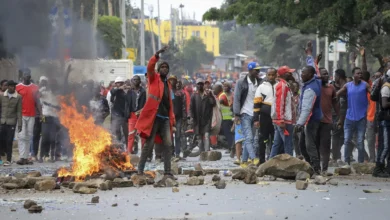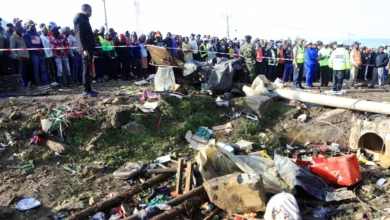GENEVA, Switzerland – The number of people fleeing famine-hit areas of Somalia is likely to rise dramatically and could overwhelm international aid efforts in the Horn of Africa, a UN aid official said Tuesday.
The United Nations estimates that tens of thousands of people have died from malnutrition in Somalia in recent months, and over 11 million people across East Africa need food aid because of a long-running drought.
The UN Food and Agriculture Organization's representative in Kenya warned that the situation could become "simply unbearable" in the coming weeks if Somalis continue to abandon their homes in south and central parts of the country in search of food.
Already thousands have fled toward the Somali capital of Mogadishu and across the borders to Kenya and Ethiopia, where refugee camps are straining under the pressure of new arrivals.
"The possibility is basically having everybody who lives in that area moving out, which would be a disaster," said Luca Alinovi, adding that transportation costs have doubled in recent months – evidence that there is growing pressure to leave.
Alinovi said FAO was working to prevent Somalis from abandoning their drought-hit farms by paying them cash for small jobs, thus allowing people to remain. Once people leave their farms, they become dependent on aid for a very long time, he said.
Cash payments have been controversial in Somalia, because of the possibility that money might end up in the hands of militant groups like al-Shabab, who are fighting the weak central government in Mogadishu.
"It is a risk that can be handled," Alinovi said of the cash payments, warning that the alternative could be a sharp rise in the number fleeing. "If this becomes a massive number, like hundreds of thousands of people moving out, then this simple problem will be very difficult to bear."
The World Health Organization, meanwhile, warned that diseases such as measles and cholera are circulating among Somali refugees, many of whom are too weak to survive the diseases.




